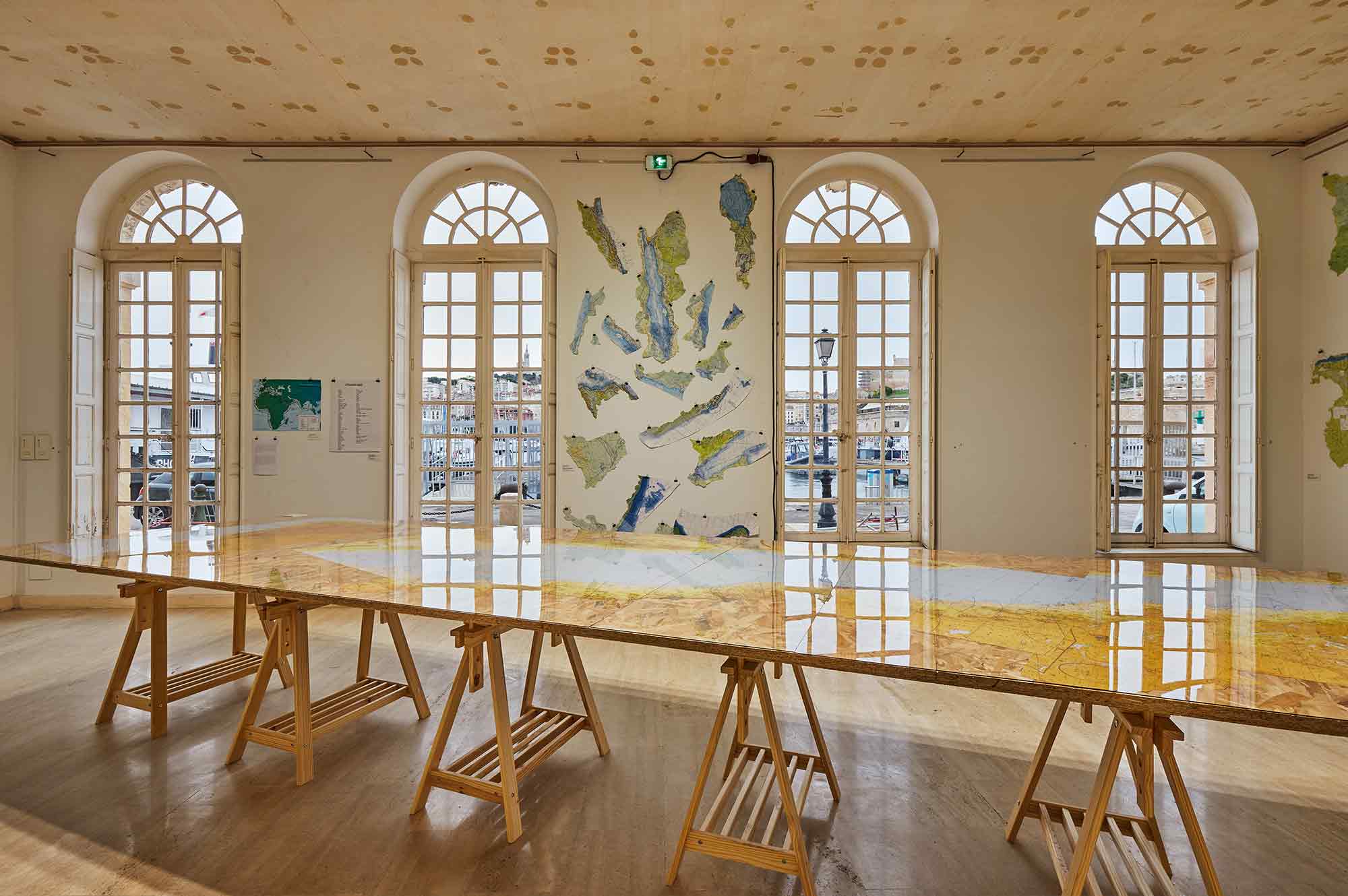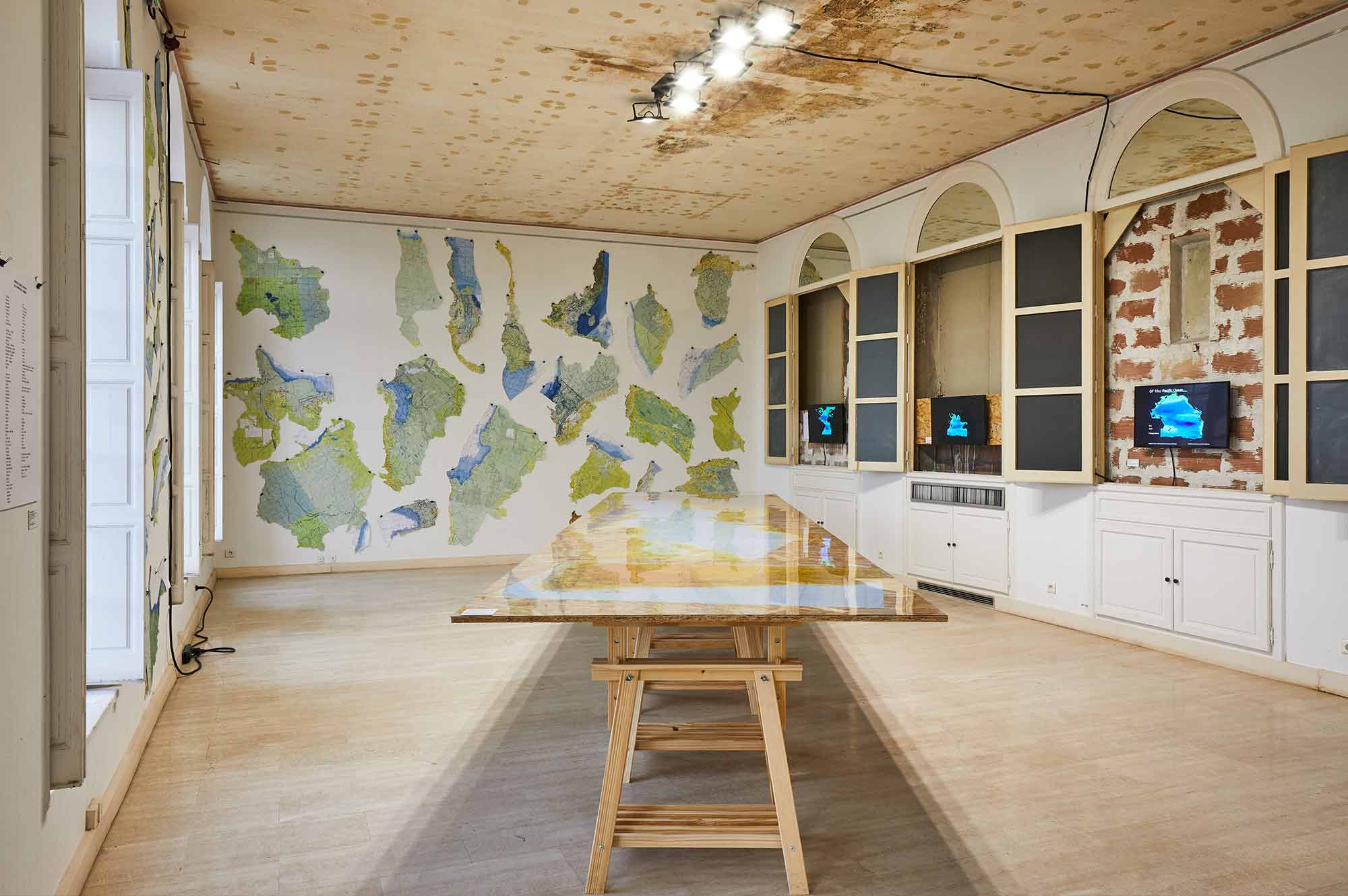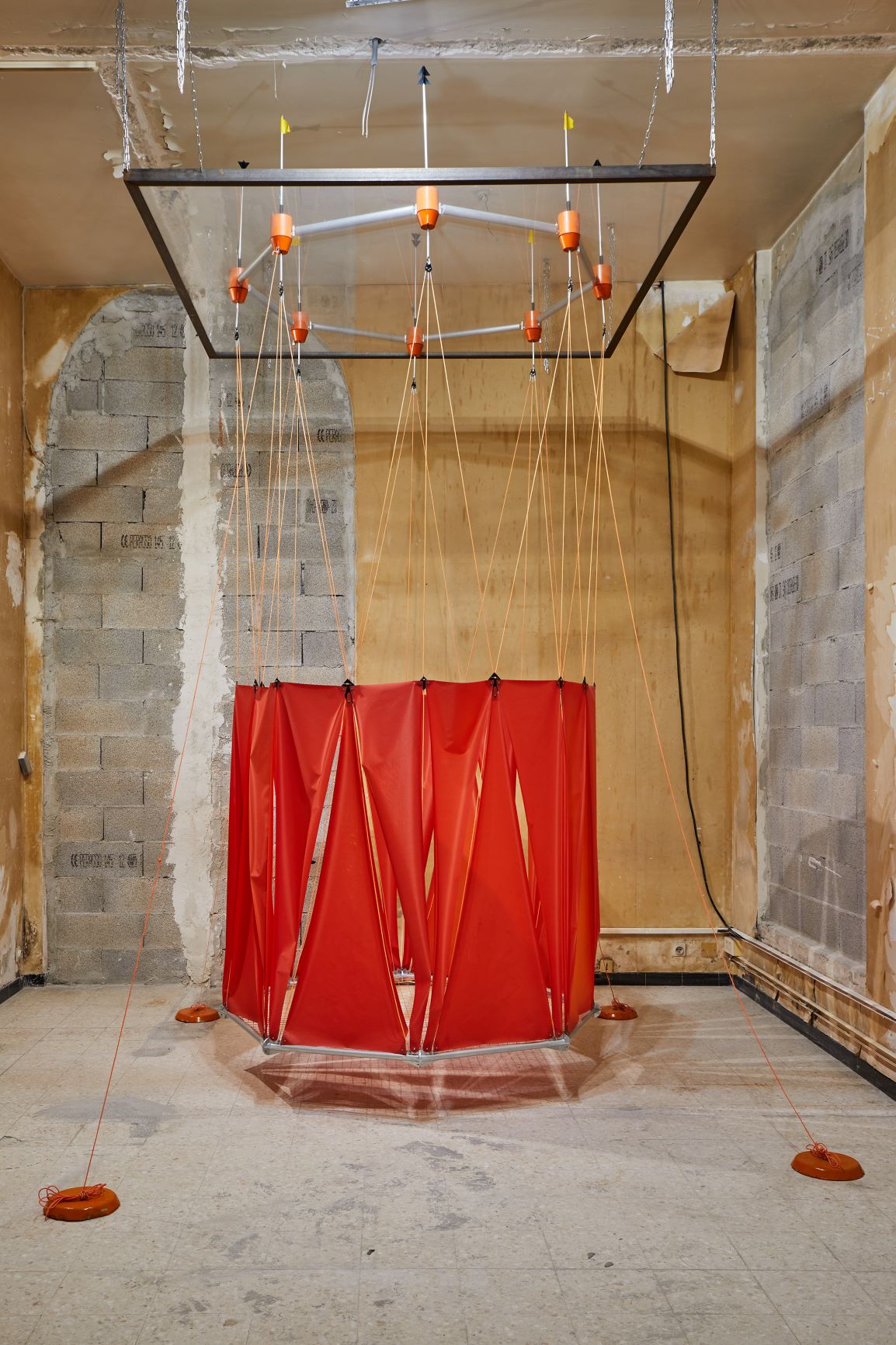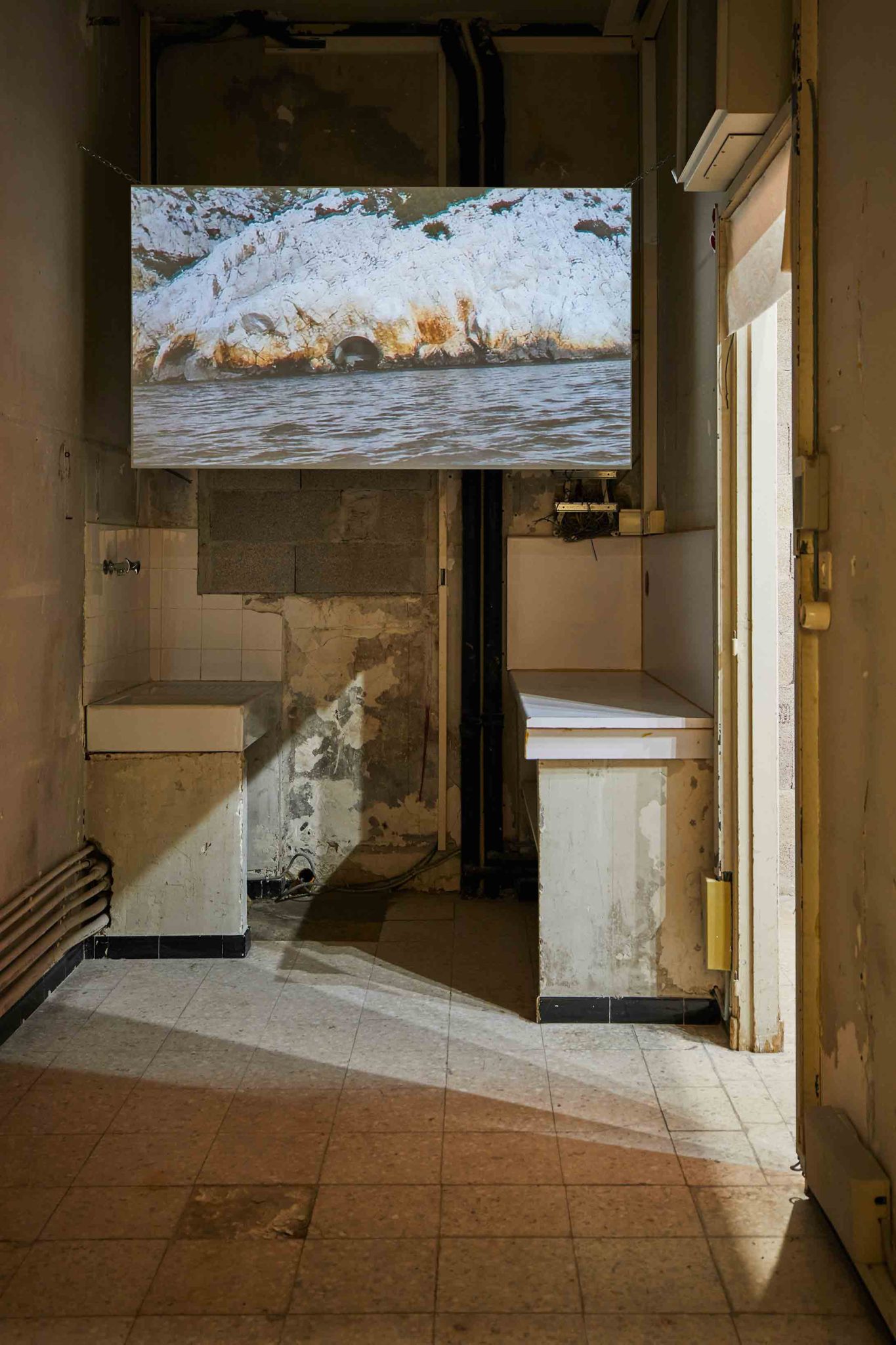Peter Fend (b. 1950, US) produces in-situ scenarios which are intended, if realised, to improve the inhabited world. All his work is seen as an architectural output from art. In 1980, further to initiatives by other US artists, he founded a company now called Ocean Earth Development Corporation. The firm, like its predecessors, sells art-sourced projects to non-art clients. Fend believes that ideas drawn from art can lead to technological innovation, with industrial results as it was the case with art from the Renaissance. Fend sees himself meeting the responsibilities for Architecture as defined by the Italian Renaissance architect Leon Battista Alberti: to assure for the city, an inhabited area, quality of Air, Water, Circulatory Space and Defense. Since 1988, after a decade of monitoring news sites with satellites for mass media (Defense), Fend has worked from within the art world, exposing his territorial plans and practical structures in biennials, museums and galleries. He aims to restore art’s usual function in society: of establishing better means of production, or material culture, and consequently better social relations.
Peter Fend, La Mer et Marseille / The sea and Marseille, 2020
Installed on the ground floor of the Consigne Sanitaire de Marseille, a historic building created in 1719 as a hygiene inspection centre for boats and sailors entering the port, La Mer et Marseille develops ecologist and autodidact artist Peter Fend’s longstanding interest in remapping water systems. Through sitespecific, research-based projects, La Mer et Marseille responds to the water conditions of the region, not only by identifying specific regional problems, but also proposing concrete courses of action.
The first chapter of Marseille et la Mer considers the cohesiveness of coastal saltwater systems connected to Marseille. Here, Fend uses satellite monitoring data to report on coastal oceanic conditions and mapping to produce information about an area spanning the Canary Islands to Hong Kong.
On a regional scale, La Mer et Marseille then investigates the degradation of saltwater areas caused by river damming. Looking at the current state of the Etang de Berre, Fend imagines a postdam hydroelectric practice and regular harvesting of nutrients accumulated in reservoirs to produce biomass energy.
On the local scale, the project turns to the Cortiou cove, whose waters are still contaminated by sewage discharges, despite on-shore improvements implemented over the past years. In Cortiou, the artist proposes using algae as a biofilter to absorb the contaminants that the treatment plant cannot filter out.
* Work conceived for the occasion of Manifesta 13 Marseille












